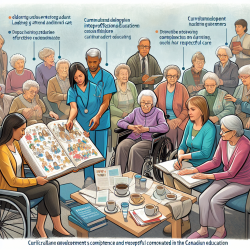Engaging parents in their child's language learning process is crucial for achieving optimal outcomes in speech and language development. Drawing insights from the 1988 research article "Parent Articles: Enhance Parent Involvement in Language Learning," this blog aims to provide practitioners with practical strategies to enhance parental involvement and encourage further research into effective language learning practices.
The significance of parental involvement in the educational process cannot be overstated. Parents play a pivotal role in reinforcing language skills outside the clinical or classroom setting, offering a unique opportunity for real-world practice and reinforcement. Here are strategies to improve skills by implementing outcomes from the research presented or by encouraging further research.
- Communicate Clearly and Regularly: Establish a clear, ongoing line of communication with parents. Regular updates on their child's progress and strategies being used in therapy can empower parents to become active participants in the learning process.
- Provide Accessible Resources: Share resources that are easily understood by parents, regardless of their background in language development. This could include simplified guides, instructional videos, and lists of activities they can do at home.
- Offer Training Sessions: Organize workshops or training sessions for parents. These sessions can cover basic language stimulation techniques, how to create a language-rich environment at home, and how to use everyday activities as opportunities for reinforcing language skills.
- Encourage Daily Practice: Encourage parents to integrate language learning into daily routines. This could include talking about the day's activities, reading together, or playing language-based games. Consistency and repetition are key to reinforcing new skills.
- Seek Feedback: Actively seek feedback from parents on the resources and strategies provided. Understanding their challenges and successes can guide the adaptation of learning strategies to better suit the child's needs.
- Facilitate Peer Support: Create opportunities for parents to connect with each other. Peer support groups can provide a platform for sharing experiences, strategies, and encouragement.
It is also essential for practitioners to remain informed about the latest research and strategies in language learning. Attending conferences, participating in webinars, and subscribing to relevant publications can provide valuable insights and innovative approaches to enhancing parent involvement.
Ultimately, the goal is to create a collaborative partnership between practitioners and parents. This partnership can foster an environment that supports the child's language development both in therapy sessions and at home. By leveraging the unique insights and opportunities presented by parental involvement, practitioners can enhance the effectiveness of language learning interventions.
For those interested in exploring the original research and gaining a deeper understanding of the strategies discussed, please follow this link: Parent Articles: Enhance Parent Involvement in Language Learning (1988).










